EDUCATE YOURSELF SO YOU CAN EDUCATE OTHERS
Learning the history and geopolitics of another country takes work. It is complicated by the onslaught of Russian propaganda and social media bots. Still, I've been visiting Ukraine since 2012 and have witnessed many changes in this young country in this decade plus.
Since then, I have watched numerous documentaries, read hundreds of articles and books, attended dozens of panels, and perhaps most importantly, have spoken to hundreds of people and, in my travels during the war, have witnessed first-hand the war crimes perpetrated by Russian aggression.
The 2022 full invasion was not the beginning but merely another stage in Russia's long-planned takeover and continued attempt at stamping out (genocide) Ukrainian culture, language, and people.
Below are links to just a few recommended resources that will help you learn more about the region's history and geopolitics.
RECOMMENDED VIEWING
Below, please find a list of free videos and those coming soon that I have personally viewed and recommend. If you have time to only watch one, please watch 20 Days in Mariupol – it is moving, mesmerizing and gives insight into the brutality of this horrific war and Russian war crimes.
Here is the logline: An AP team of Ukrainian journalists trapped in the besieged city of Mariupol struggle to continue their work documenting atrocities of the Russian invasion. As the only international reporters who remain in the city, they capture what later become defining images of the war: dying children, mass graves, the bombing of a maternity hospital, and more. After nearly a decade covering international conflicts, including the Russia-Ukraine war, for The Associated Press, 20 Days in Mariupol is Mstyslav Chernov’s first feature film. The film draws on Chernov’s daily news dispatches and personal footage of his own country at war. It offers a vivid, harrowing account of civilians caught in the siege, as well as a window into what it’s like to report from a conflict zone, and the impact of such journalism around the globe.






Winter on Fire and Freedom on Fire
Winter on Fire: Ukraine's Fight for Freedom is a 2015 documentary from acclaimed director Evgeny Afineevsky about the 2013–2014 Maidan Uprising, in Kyiv, via a chronological approach to key events via historic footage and testimonies of two dozen protesters. It can be viewed on Netflix.
Evgeny's follow up Freedom on Fire: Ukraine's Fight for Freedom was filmed during the harrowing early days of Russia's full invasion of Ukraine in 2022. Like 20 days in Mariupol I consider this must viewing. At time of publication, Freedom on Fire is currently only available for rent on platforms such as Apple TV, Amazon and others. But check around as exhibition windows change often.
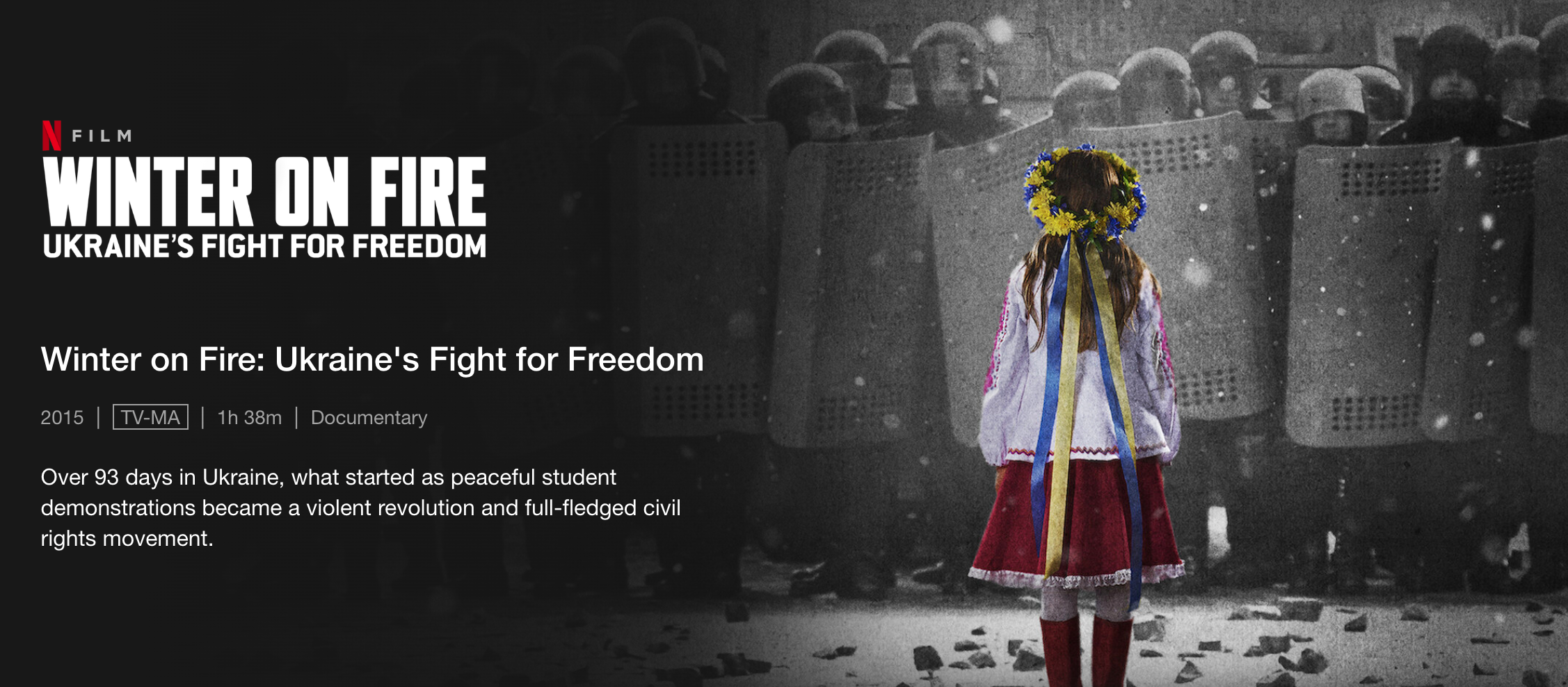

BUCHA Film
BUCHA is a feature drama film based on actual events in Bucha, Vorzel, and Hostomel (Kyiv region) during the Russian occupation in the first months of the war in February-March 2022. The main character is a foreigner from Kazakhstan who decided to fight against Russia's evil aggression in Ukraine, a country that had become his home and rescue local residents trapped in Russian occupied territory.
Bucha is currently screening all around the country. Look for it in a theatre near you in 2024 and 2025.
RECOMMENDED READING
Reading is fundamental to understanding Ukraine's history in context of the current Russian aggression. From books to blogs, to newsletters, there is a plethora of information available. It is crucial that only trusted and vetted sources free of Russian influence are used. Please do not post or amplify misinformation or disinformation. Nor should you always trust "the spouse of that 1/2 Ukrainian-American friend you knew in high school" to give you the scoop. Verify, then trust.
The Kyiv Independent
The Kyiv Independent is Ukraine’s fastest-growing English-language media outlet, created in November 2021, just three months before the full-scale Russian invasion of Ukraine.
The Kyiv Independent was born out of a fight for freedom of speech. It was co-founded by a group of journalists who were fired from the Kyiv Post, then a prominent newspaper, as the owner attempted to take the newsroom under control and end its critical coverage of Ukrainian authorities.


Short History of Ukraine
- SHORT HISTORY OF UKRAINE is a must read for those wishing to understand the dynamics of Ukrainian history in relation to Russia. Short, sweet, and way more fun than history class in college. Click the link HERE to download this PDF for an uber-useful shorthand to Ukrainian and Russian relations over the years.
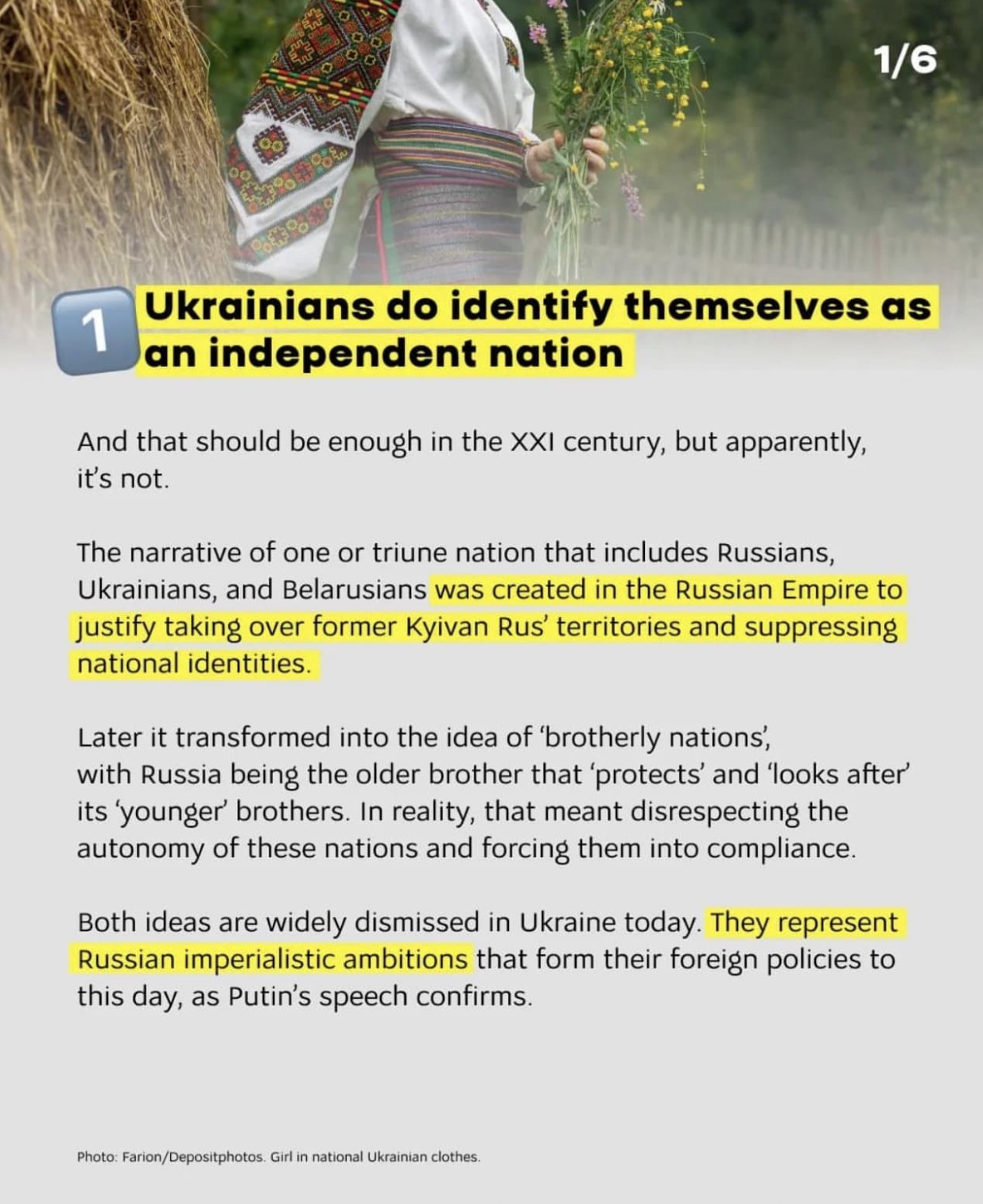
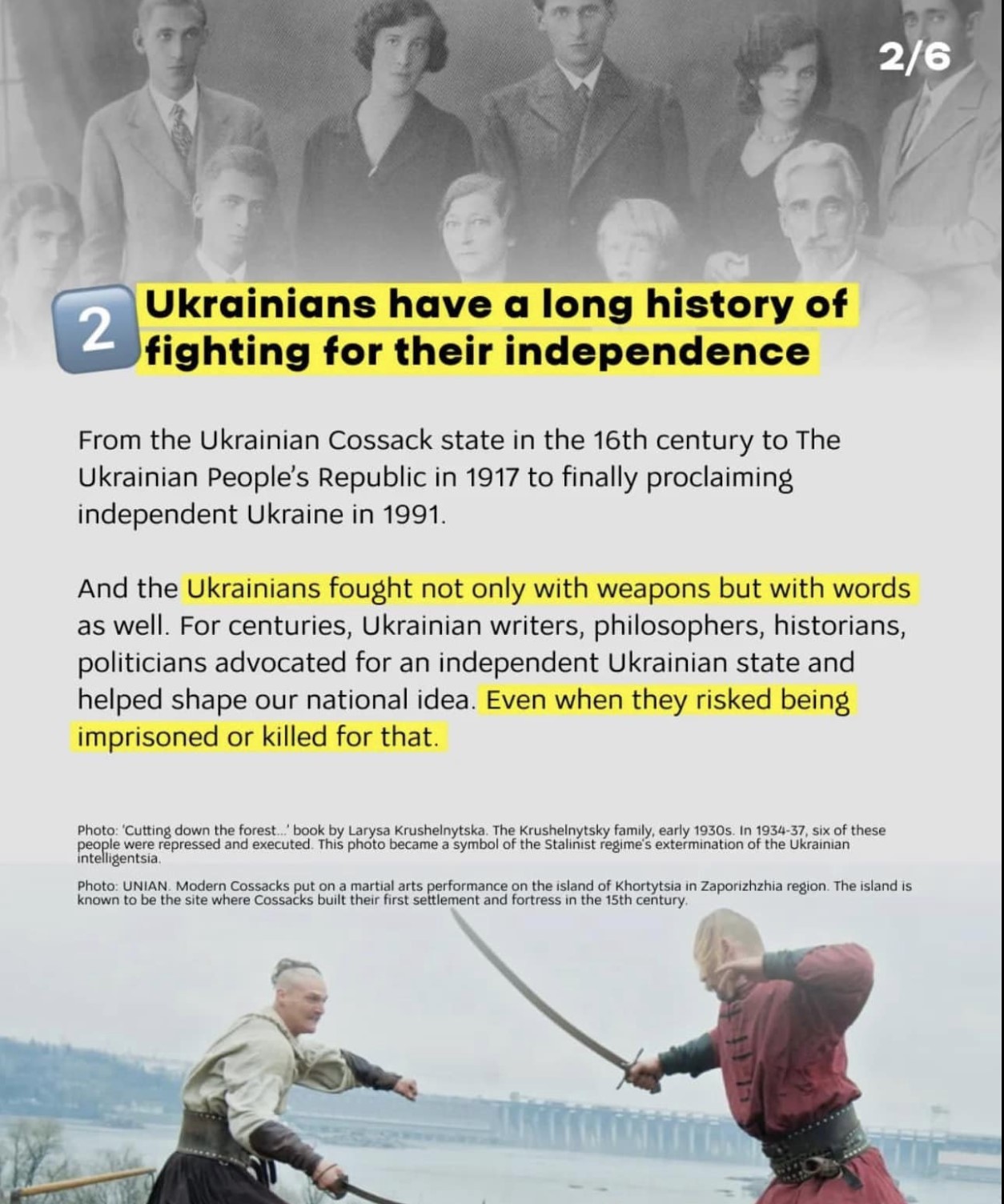
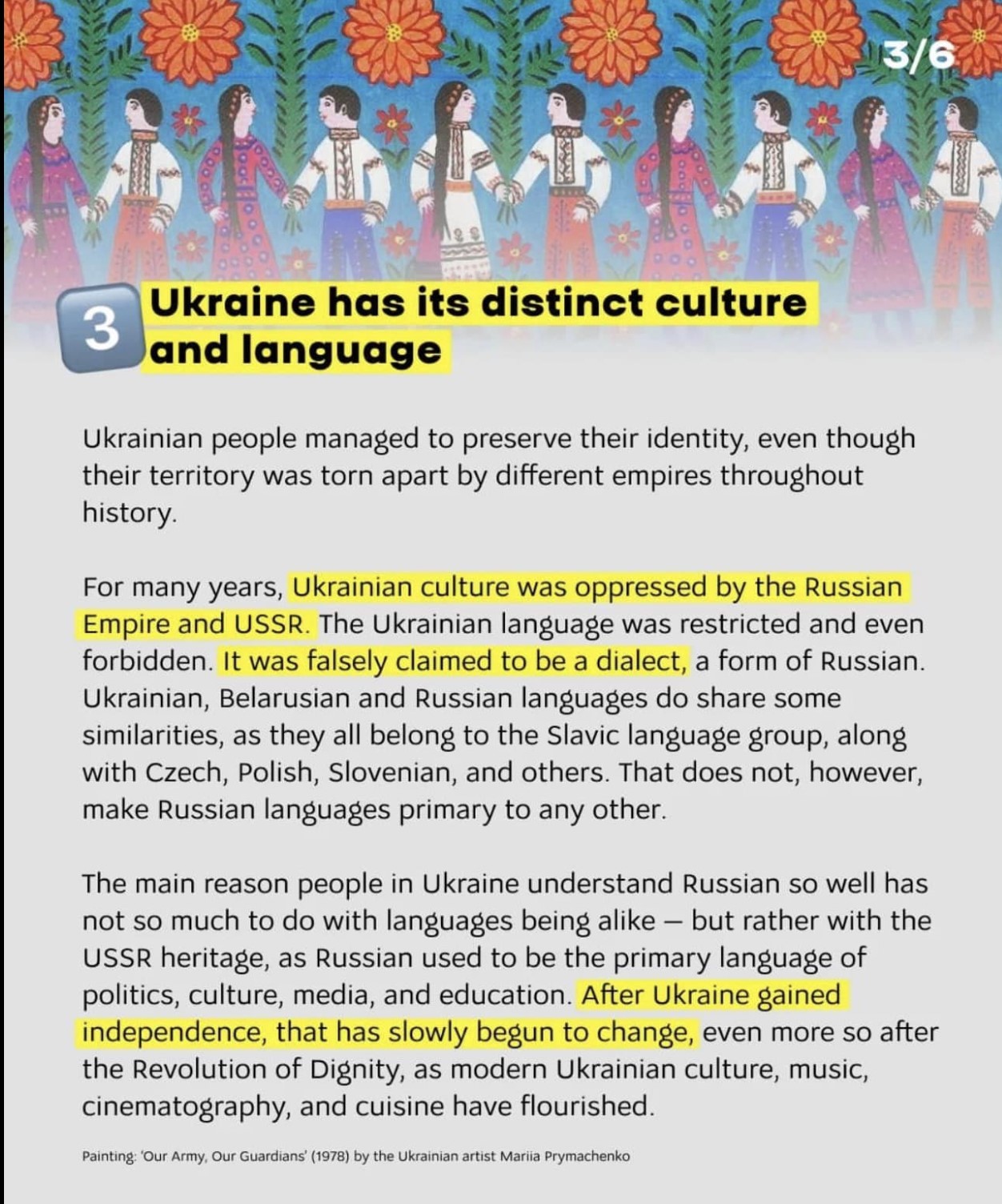
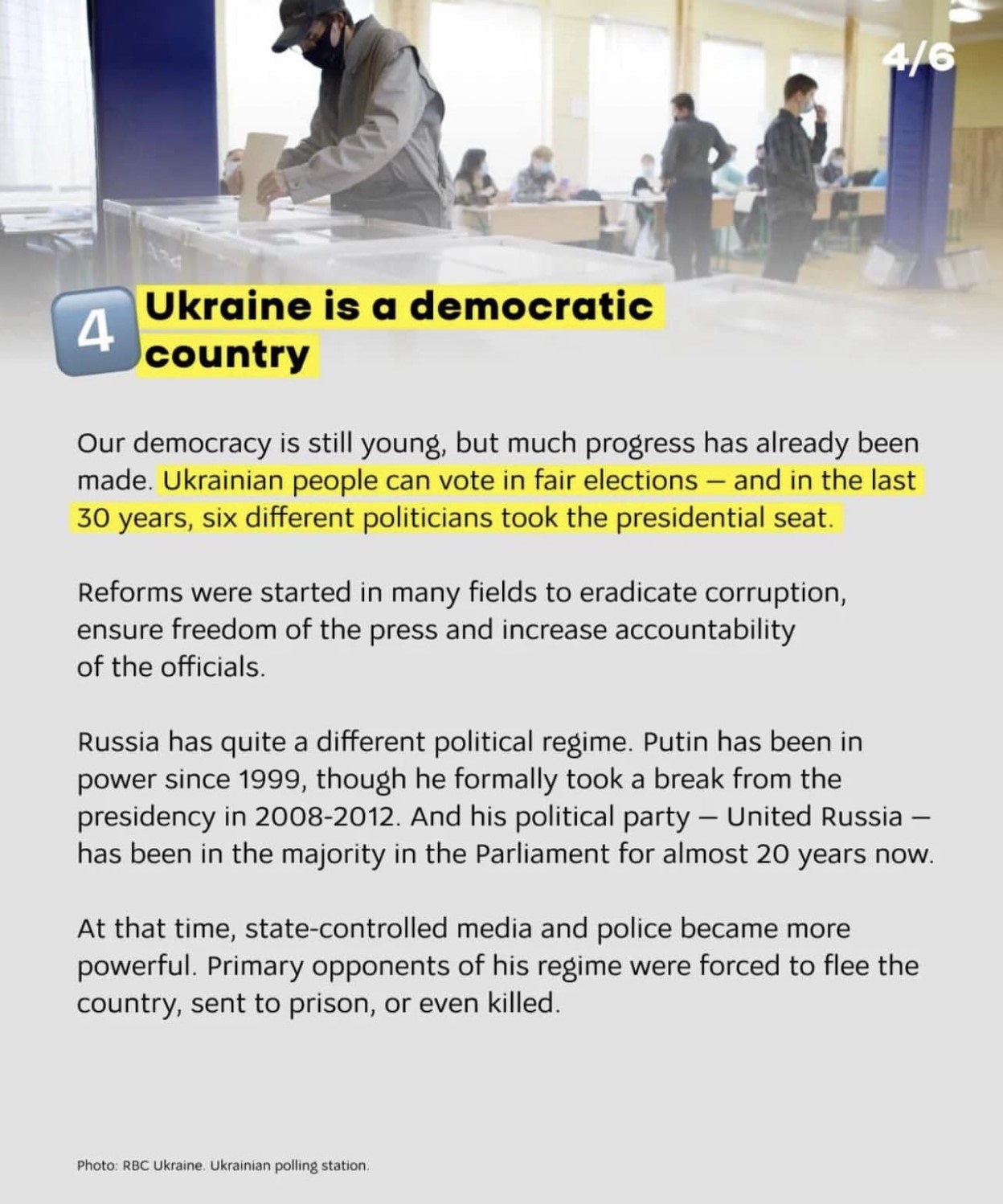



Paul Grod Article
PAUL GROD ARTICLE – Still short on time but want more? Well, this article is for you. Paul Grod”s six-minute article succinctly and accurately demonstrates that Russia does not believe Ukraine and, thus, Ukrainians even have a “right to exist,” hitting all the five factors consistent with the definition of genocide. It’s a must-read to get a quick background on Russia’s 300-plus-year history of trying to exterminate Ukraine.

Bloodlands by Timothy Snyder
TIMOTHY SNYDER – BLOODLANDS – Any book by the well-respected historian and author Timothy Snyder is recommended, but I especially found Bloodlands helpful. It is long, but worth the time.

Ukraine and the Art of Strategy by Lawrence Freedman
Ukraine and the Art of Strategy: by Lawrence Freedman - I found this book helpful in understanding the lead up to Russia's 2014 Crimea invasion and aftermath prior to the full invasion of February 24th, 2022.

The War Came to Us - Christopher Miller
The War Came to Us is the definitive, inside story of Ukraine's long fight for freedom. Told through acclaimed journalist Christopher Miller's personal experiences, vivid front-line dispatches and illuminating interviews with unforgettable characters, The War Came To Us takes readers on a riveting journey through the key locales and pivotal events of Ukraine's modern history. From the coal-dusted, sunflower-covered steppe of the Donbas in the far east to the heart of the Euromaidan revolution camp in Kyiv; from the Black Sea shores of Crimea, where Russian troops stealthily annexed Ukraine's peninsula, to the bloody battlefields where Cossacks roamed before the Kremlin's warlords ruled with iron fists; and through the horror and destruction wrought by Russian forces in Bucha, Bakhmut, Mariupol, and beyond.
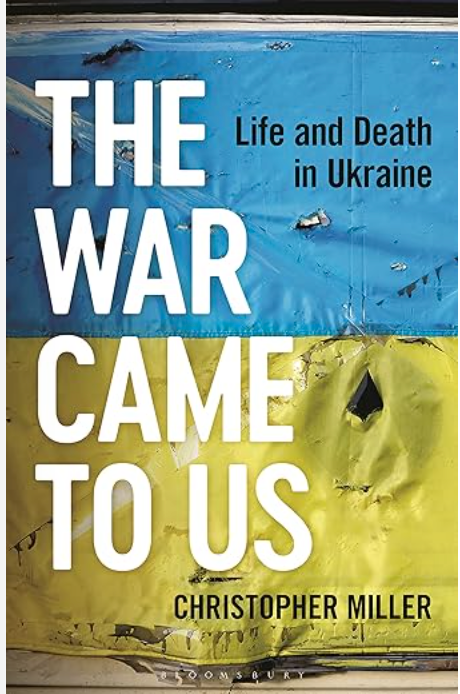
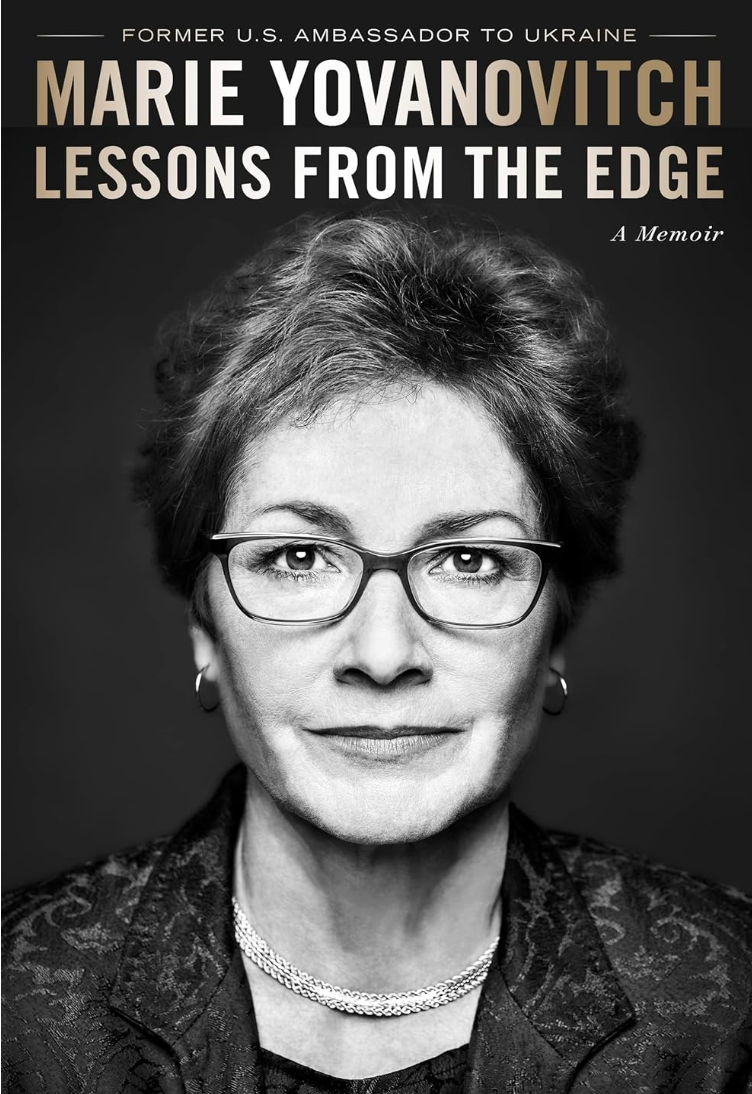
Marie Yovanovitch: Lessons from the Edge
For several decades, Marie Yovanovitch was a quiet but supremely qualified, pioneering, dedicated, and patriotic public servant. This excellent and gripping memoir heats up at the end when Maria's career is prematurely upended by disgraced former NYC Mayor and Trump political operative Rudy Giuliani and his now thoroughly discredited fishing expedition for dirt on Biden during the Trump administration. It outlines the power struggle as Ukraine sought to separate itself from Russian corruption and control. Sadly, the U.S. presidential administration at the time valued its own political ambitions over democracy, and Maria, the USA, and Ukraine paid the price. Lessons from the Edge is a fascinating and enlightening read that covers the ground that leads to Trump's first impeachment (blackmailing Ukraine's new president), Russia's full invasion, and sadly, is a cautionary tale of things yet to come.
Russia's War on Everybody by Keir Giles
"You may not be interested in Russia, but Russia is interested in you," goes one of my favorite quotes by the author, Russian expert Keir Giles. But there were so many salient points in this book that I marked up half the book. It's an eye-opener that will change how you see not only Russia but also the world. Russia's War on Everybodyis a quick, immersive, fascinating must-read.


The Folly and the Glory by Tim Weiner
You know what they say about 20/20 vision. This book covers political warfare since World War II. It provides an excellent backdrop for U.S. actions during the Cold War. But Russia's actions really heated up after the fall of the Berlin Wall with the "election" of Putin. Several successive U.S. administrations made mistakes dealing with Russia and Putin, of which there is no doubt. Today, we live with the results, and few are paying more than Ukrainians. The Folly and the Glory is another fascinating must-read.
Don't Say "THE Ukraine"
DON’T SAY “THE UKRAINE” – It’s just Ukraine. Generally speaking, many Ukrainians don’t like “The Ukraine” because it translates to “the borderland” and symbolizes it as a region in Russia. It also was a way for Russians to refer to Ukraine as a thing rather than a place, culture and people.
Read more at the following links:
https://theconversation.com/its-ukraine-not-the-ukraine-heres-why-178748
https://www.sapiens.org/language/ukraine-versus-the-ukraine/
https://www.theatlantic.com/ideas/archive/2022/02/defending-ukraine/622063/

Companies Still Doing Business In Russia
Believe it or not, major companies like Hugo Boss or Subway or Oreo Cookies, still do business in Russia. Here is a good resource if you’d like to boycott companies doing business in Russia or name and shame them (see our Hall of Shame) for more.
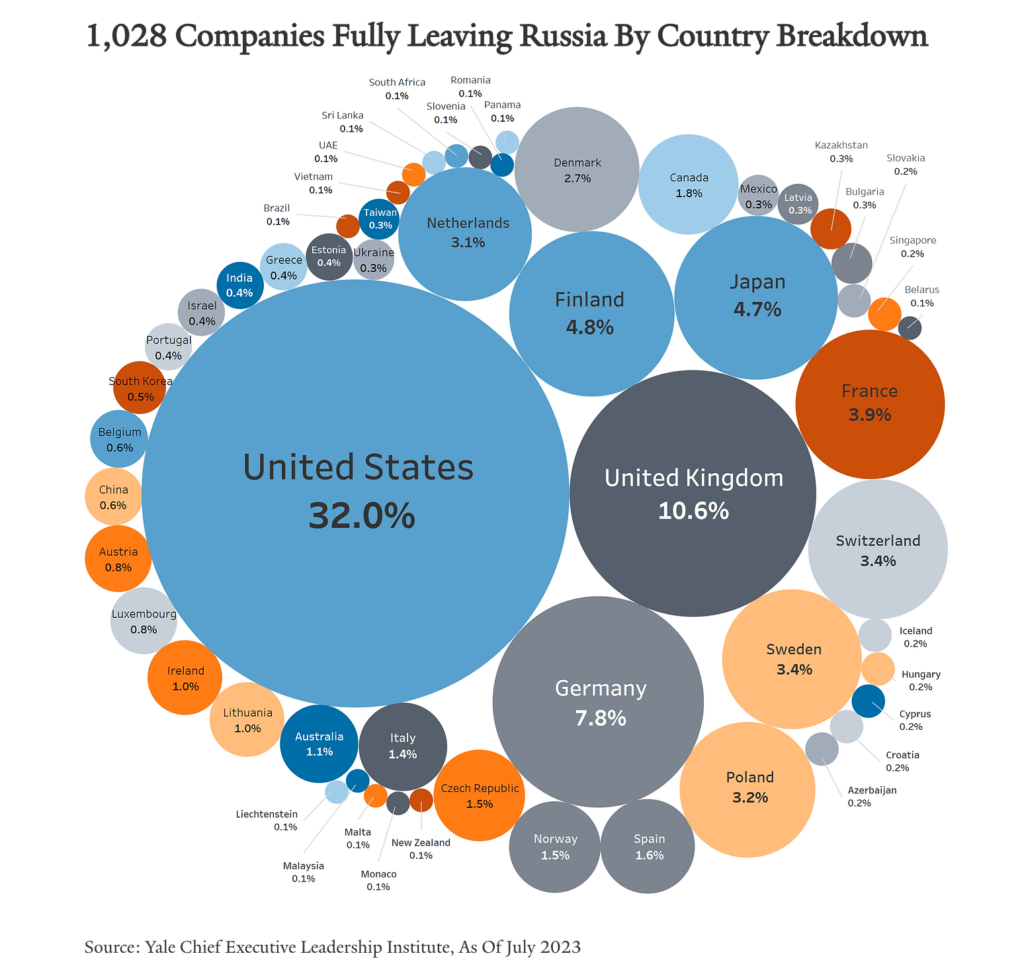
WHY RUSSIA IS UNTRUSTWORTHY AND PEACE CAN ONLY BE ACHIEVED BY VICTORY ON THE BATTLEFIELD
Peaceniks are my kind of people, usually, but not regarding Russia. Ukrainians know they will have no peace so long as Russia exists in its current imperialistic form. Ukrainians are fighting (and sacrificing mightily) for peace. Russia is fighting for Putin. Peace treaties with Russia are worthless. Here is why.
- reposted from the X account of Hendrik Kindstedt
Here is a short list of the results of negotiations with Russia that it never respected:
1. The Budapest Memorandum of 1994. Russia agreed to “respect independence, sovereignty, and the existing borders of Ukraine” and “refrain from the threat or use of force against the territorial integrity or political independence of Ukraine”. Breached by Russia invading Crimea in 2014.
2. The Russian-Ukrainian Friendship Treaty of 1997. Russia agreed to respect Ukraine’s territorial integrity and “reaffirmed the inviolability of the borders” between the two countries. Russia breached it in 2014.
3. The OSCE Istanbul Summit in 1999. Russia committed to withdrawing its troops from Moldova’s Transdniestria region and Georgia until the end of 2002. That never happened.
4. The 2008 Georgia ceasefire agreement following Russian aggression against the country. Russia agreed that “Russian military forces must withdraw to the lines prior to the start of hostilities.” That never happened.
5. The Ilovaysk “Green Corridor” in August 2014 and other “humanitarian” death corridors. Russia pledged to let Ukrainian forces leave the encircled town of Ilovaysk in the east of Ukraine but instead opened fire and killed 366 Ukrainian troops. In the following years, Russia attacked numerous humanitarian corridors in Syria.
6. The “Minsk” agreements of 2014 and 2015. Russia agreed to cease the fire in the east of Ukraine. There had been 200 rounds of talks and 20 attempts to enforce a ceasefire, all of which the Russian side promptly violated. On February 24th, 2022, Russia launched a full-scale invasion of Ukraine.
7. The 2022 Black Sea Grain Initiative. Russia pledged to “provide maximum assurances regarding a safe and secure environment for all vessels engaged in this initiative." It hindered the initiative's operation for months before withdrawing unilaterally a year later.
8. 2024 - Chemical War Treaty - Russia broke this by using chemical weapons. See link here. (Added by Robert G. Rose - Editor)
The above only focuses on deals made with Russia to address specific issues and conflicts. Not to mention the almost 400 international treaties that Russia has breached since 2014.
There are no conclusions to be drawn here, except that no one can seriously use the words "Russia" and "negotiations" in the exact phrase. Putin is a habitual liar who promised international leaders that he would not attack Ukraine days before his invasion in February 2022.
Russia's tactic has remained consistent in its many wars over the last three decades: kill, grab, lie, and deny.
Why would anyone genuinely believe that Russia in 2023 is any different from Russia in 1994, 1997, 1999, 2008, 2014, 2015, and 2022?


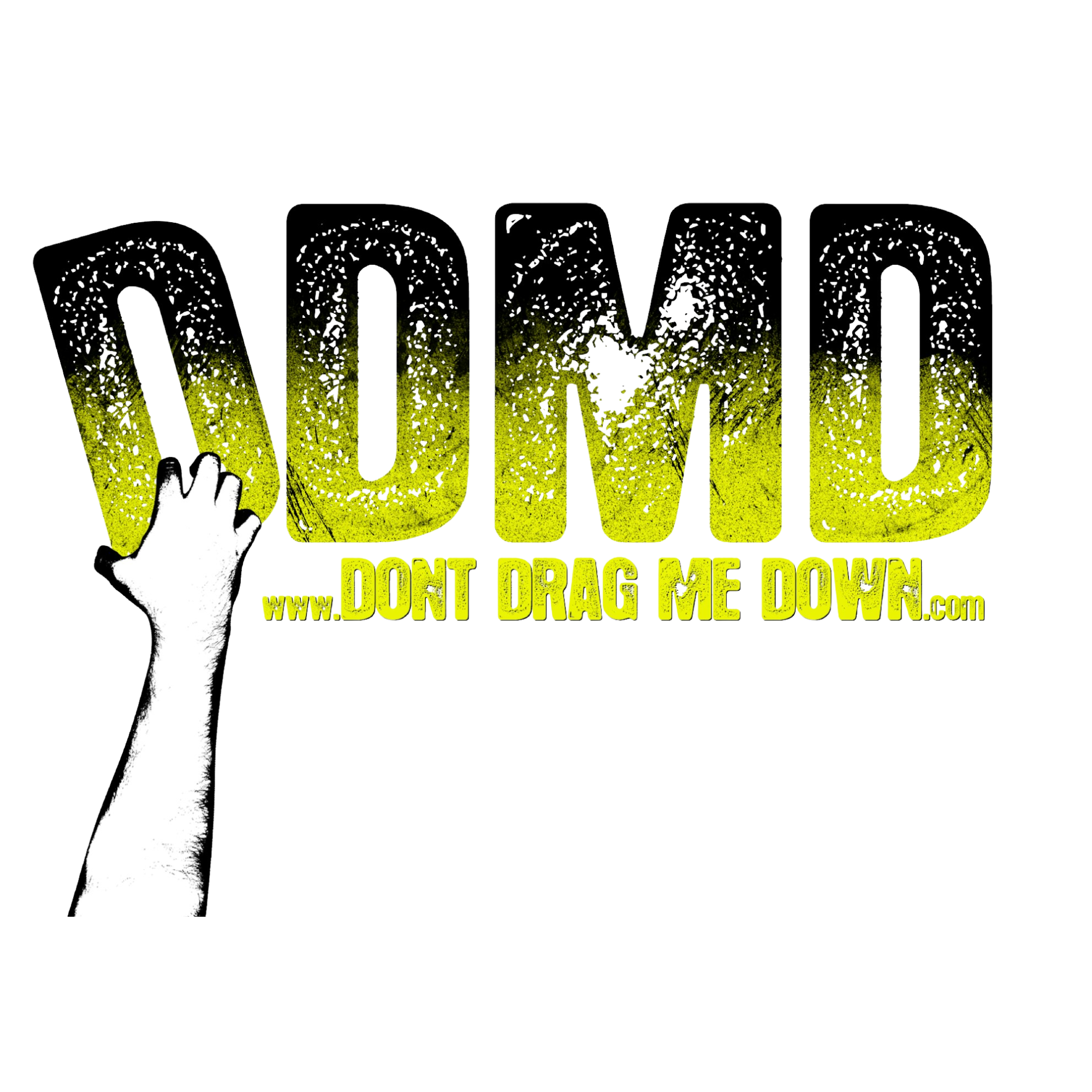
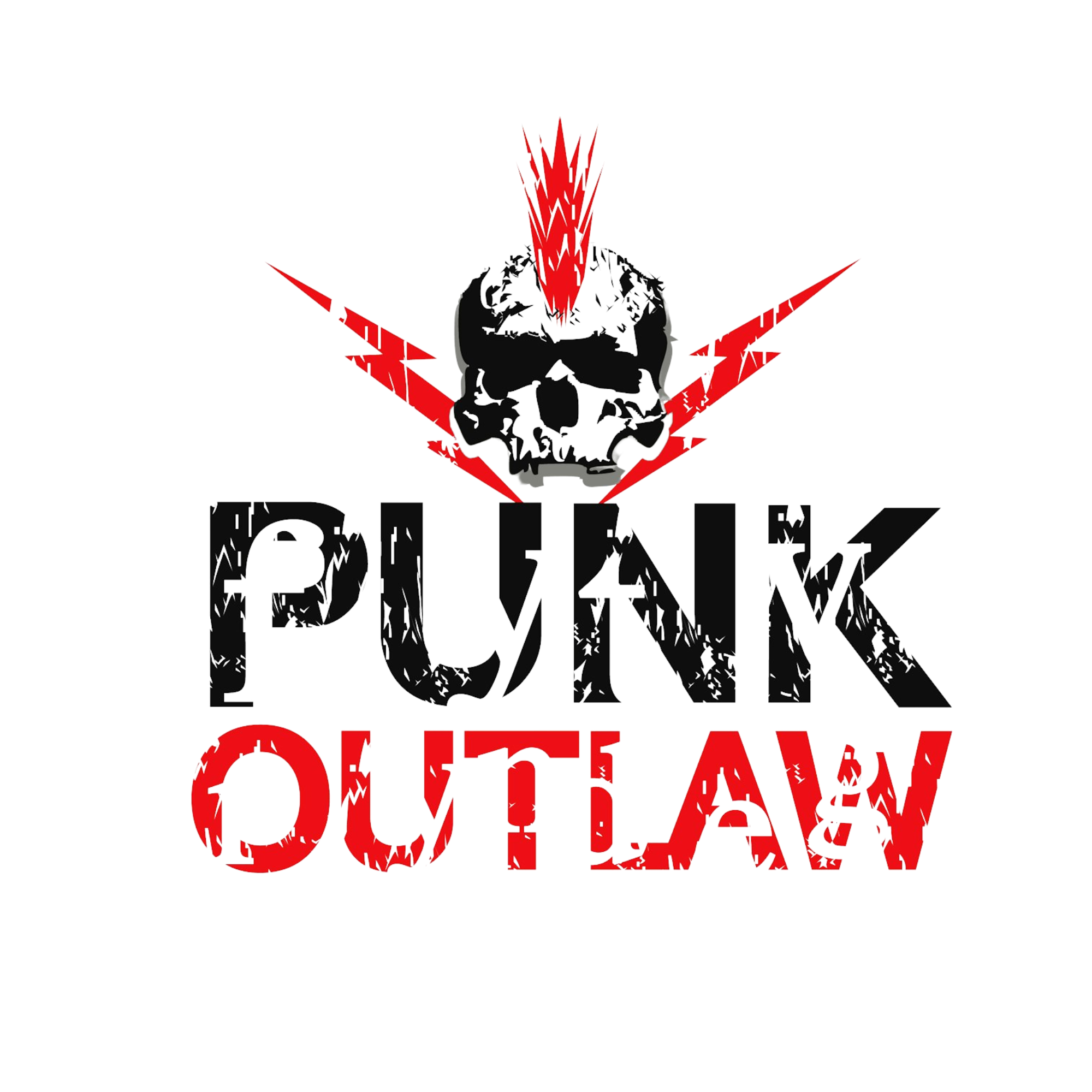
.png)